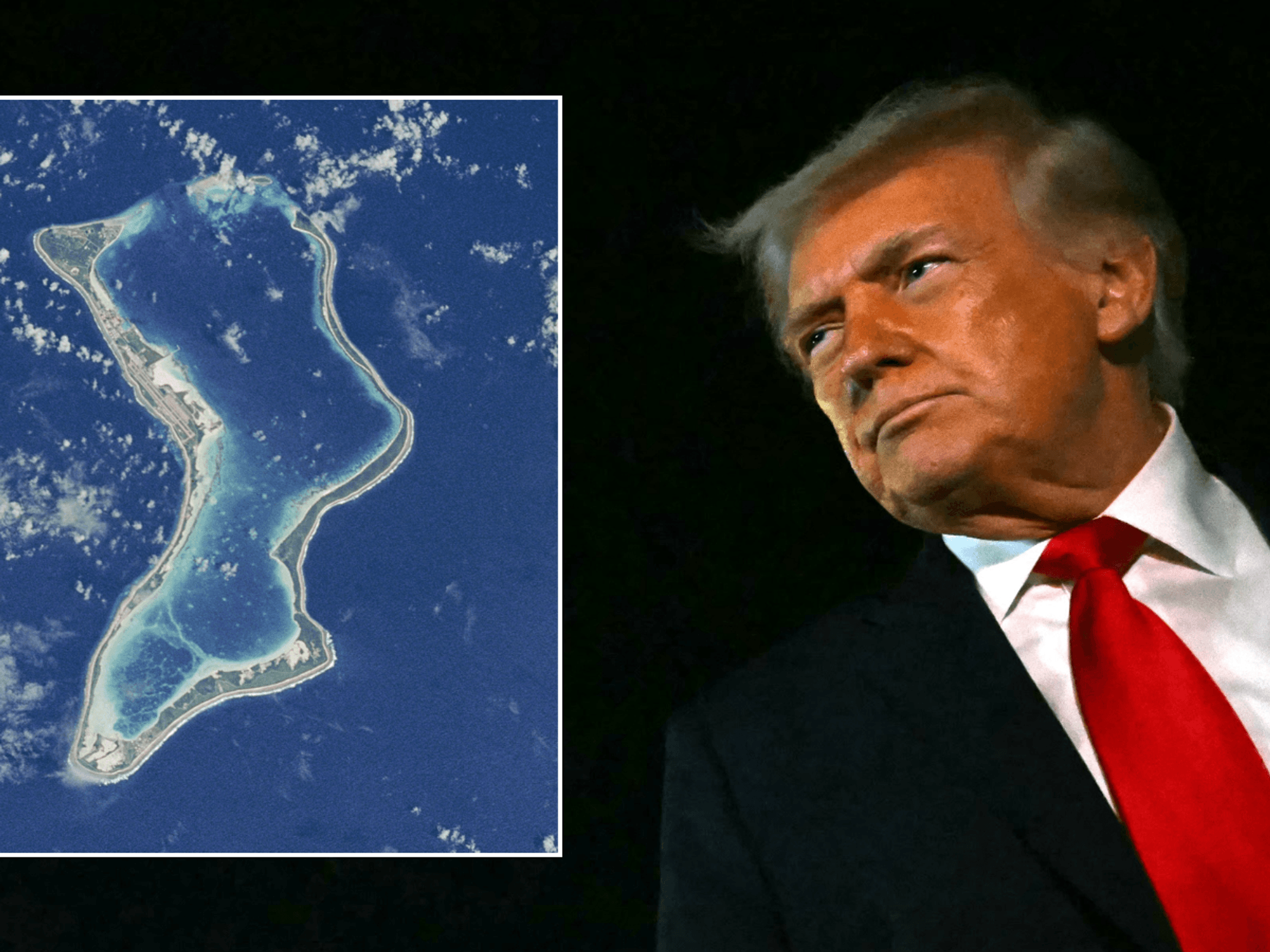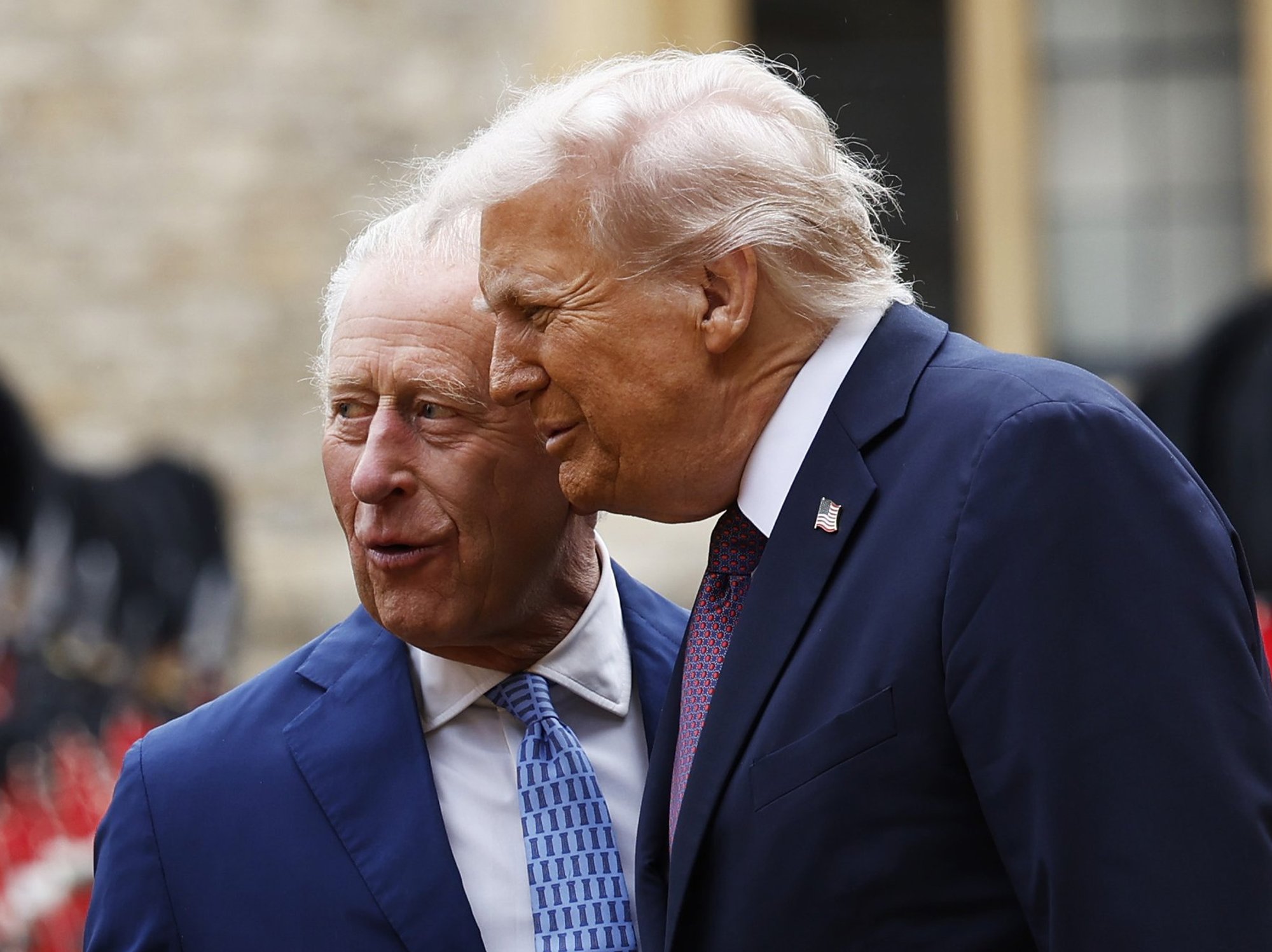Migrant protests shake JAPAN after country sets up 'hometowns' for African 'partners'
Demonstrations have erupted in the major cities of Tokyo and Osaka after Japan's foreign population hit an all-time high
Don't Miss
Most Read
Trending on GB News
Migrant protests have erupted in Japan after "hometowns" for four African countries were set up in Japanese cities.
Controversy was sparked last week after authorities announced a new initiative under the Japan International Cooperation Agency (Jica), who describes its goal as creating a "peaceful and prosperous world where people can hope for a better future and explore their diverse potentials".
At the Tokyo International Conference on African Development, Jica announced the roll-out of an "African Hometown Initiative", which declared four "hometowns" in Japanese cities for Nigeria, Ghana, Tanzania and Mozambique.
Officials in the city of Imabari, the site of the new hometown for Mozambique, revealed to public broadcaster NHK that they have received thousands of phone calls and emails of concern about the programme.
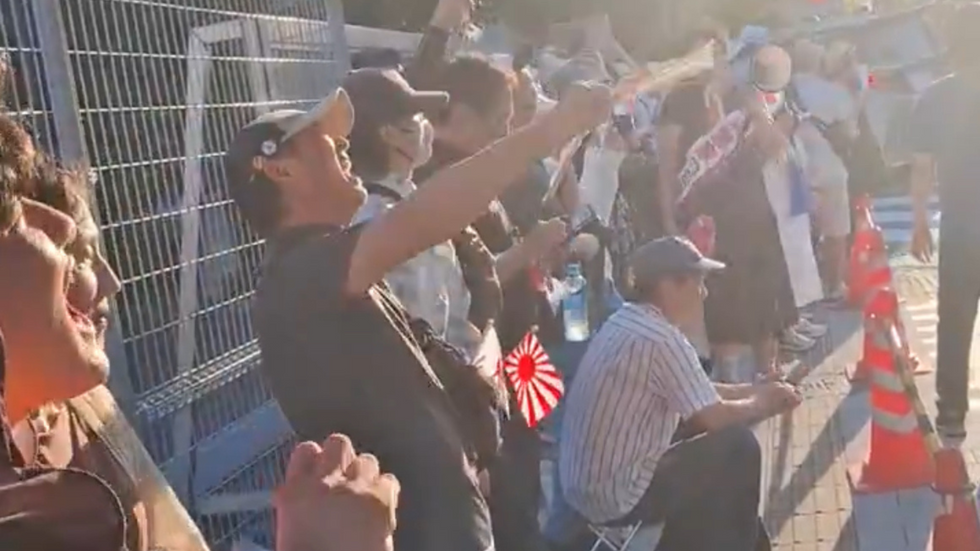
Migrant protests have erupted in Japan after 'hometowns' for four African countries were set up in Japanese cities.
|X
However, amid fears that the hometowns were being set up to accommodate future African immigrants, Jica and the Ministry of Foreign Affairs affirmed the programme aims to tackle challenges in Africa while supporting local communities in Japan.
Nigeria's Government fanned the flames by posting a now-deleted announcement that “the Japanese Government will create a special visa category for highly skilled, innovative, and talented young Nigerians who want to move to Kisarazu (city) to live and work".
Chief Cabinet Secretary Hayashi Yoshimasa addressed the concerns on Tuesday, saying that while the Jica will be taking on African interns as part of the scheme, they will be returned back to their countries after completing training.
Japan's Foreign Ministry published a statement afterwards which read: “There are no plans to take measures to promote the acceptance of immigrants or issue special visas for residents of African countries, and the series of reports and announcements concerning such measures are not true".
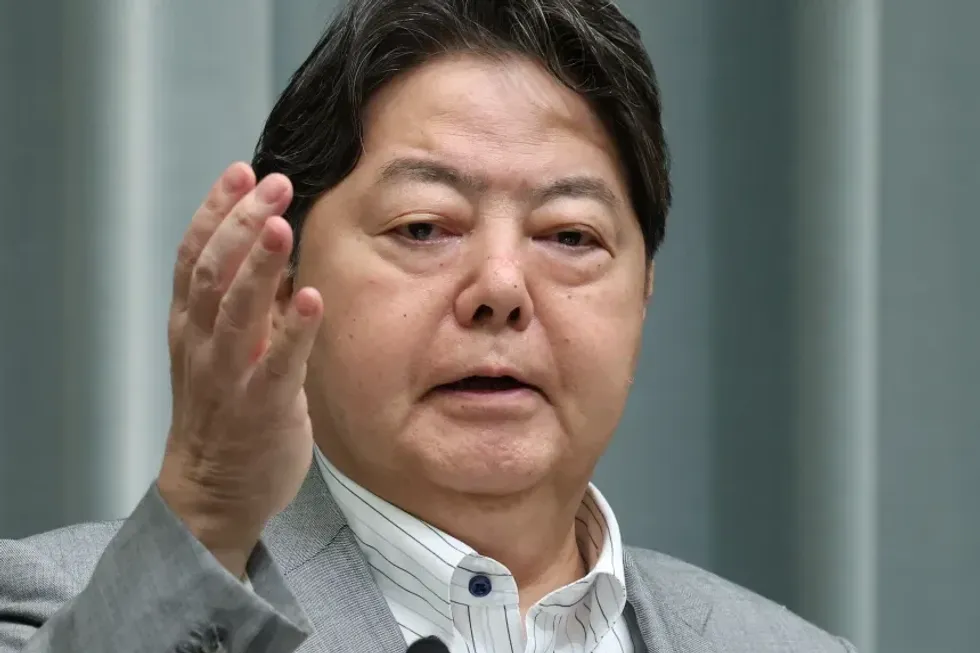
Chief Cabinet Secretary Hayashi Yoshimasa said that while the Jica will be taking on African interns as part of the scheme, they will be returned back to their countries after completing training
|GETTY
After the Nigerian Government's statement, crowds gathered outside the Jica headquarters in Tokyo to oppose what they believed to be a relaxing of Japan's strict immigration policy.
Protesters hit out at the creation of the hometowns and Prime Minister Ishiba Shigeru, after he announced that Japan would be increasing its investment into the African continent to $36.7billion (£27.1billion).
Demonstrators were seen waving placards which vowed to "protect the Japanese people" and were heard calling for an "end to mass migration".
Concerns around immigration and over-tourism have been on the rise in the east Asian country in recent months, with hard-right party Sanseito surging in the polls.
The party has built its popularity on warning against a "silent invasion of foreigners" and running on a "Japanese First" agenda.
WORLD NEWS - READ THE LATEST:
- One dead and several injured after two planes smash into each other mid-air
- Thousands attend March for Australia protest as anti-migrant tensions spread around world
- Kremlin breaks silence after British toddler 'kidnapped' from holiday hotspot and taken to Russia
- Protests in tourist hotspot turn deadly as parliament building set alight
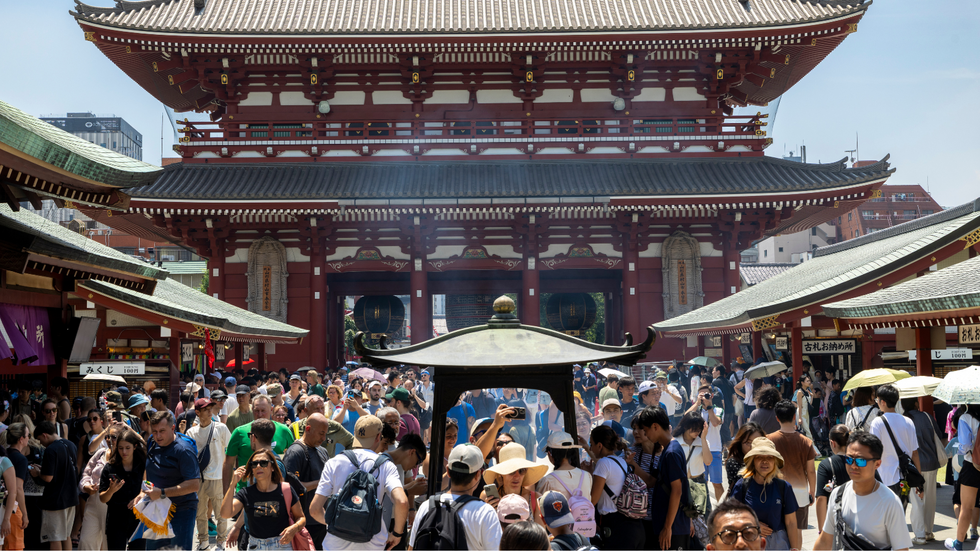
The number of foreign residents living in the country reached a record high of 3.8 million at the end of last year
|GETTY
Sohei Kamiya, the party's founder, said that Japan risked becoming a "colony" if they did not "resist foreign pressure".
The number of foreign residents living in the country reached a record high of 3.8 million at the end of last year - making up three per cent of the total population.
Japan has also been grappling with the issue of over-tourism, after numbers hit an all-time high of 36.9 million in 2024, the National Tourism Organisation revealed.
The significant increase in foreigners coming to Japan has increasingly frustrated locals, with some blaming a rise in both crime and the cost of living on them.
Two weeks ago, the Japanese Government created a new office designed to crack down on foreigners "who do not follow our rules" amid fears over rising crime within the country.
The Japanese Prime Minister said that while foreign nationals were a net positive to the economy, "it's important for us to take stricter responses to those who do not follow our rules and rework the existing system if it does not match the reality".
Japanese authorities have relaxed the traditionally strict immigration laws in recent years amid concerns of the ageing population and historically low birth rates recorded in the country.
Last year, the Ministry of Internal Affairs revealed that nearly a million more deaths than births were recorded in the country in 2024.









